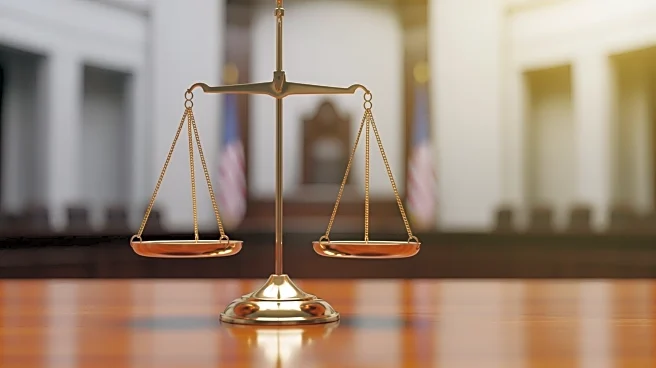Rapid Read • 8 min read
Connor Stalions, a central figure in a scandal involving the Michigan football program, has been sanctioned by the NCAA with an eight-year show-cause penalty. This decision follows allegations that Stalions illegally stole signs from opposing teams, a controversy that nearly overshadowed Michigan's 2023 championship season. Stalions' attorney, Brad Beckworth, has publicly criticized the NCAA's actions, describing them as part of a 'vendetta' against his client. Beckworth argues that the NCAA's investigation was flawed and biased, likening it to a 'witch hunt' against Michigan's head coach, Jim Harbaugh. Despite the penalties, Beckworth maintains that Stalions plans to remain involved in football. The NCAA's ruling also included sanctions against other Michigan coaches, with Harbaugh receiving a 10-year show-cause penalty.
AD
The NCAA's decision to impose severe penalties on Connor Stalions and other Michigan coaches highlights ongoing tensions between the organization and college football programs. The sanctions could have significant implications for Michigan's football program, potentially affecting its recruitment and competitive standing. The case also raises broader questions about the NCAA's enforcement practices and the fairness of its investigations. Critics, including Stalions' attorney, argue that the NCAA's actions are inconsistent and disproportionately harsh, which could lead to increased scrutiny of the organization's role in college sports. This situation underscores the challenges faced by the NCAA in maintaining integrity and fairness in collegiate athletics.
Michigan has announced plans to appeal the NCAA's ruling, which could lead to a prolonged legal battle. The outcome of the appeal may set a precedent for how similar cases are handled in the future. Additionally, the controversy may prompt discussions about reforming NCAA regulations and enforcement procedures. Stakeholders in college athletics, including coaches, athletes, and administrators, will likely be watching closely to see how this case unfolds and what it means for the future of college sports governance.
The case against Connor Stalions and the subsequent penalties highlight ethical and legal challenges within college sports. The use of a 'show-cause' penalty, which effectively bans individuals from college athletics, raises questions about due process and the balance of power between the NCAA and member institutions. The situation also reflects broader cultural debates about amateurism in college sports and the financial interests at play. As the NCAA faces increasing pressure to adapt to a changing landscape, this case may serve as a catalyst for reform and greater transparency in its operations.
AD
More Stories You Might Enjoy










